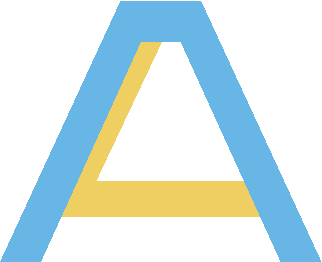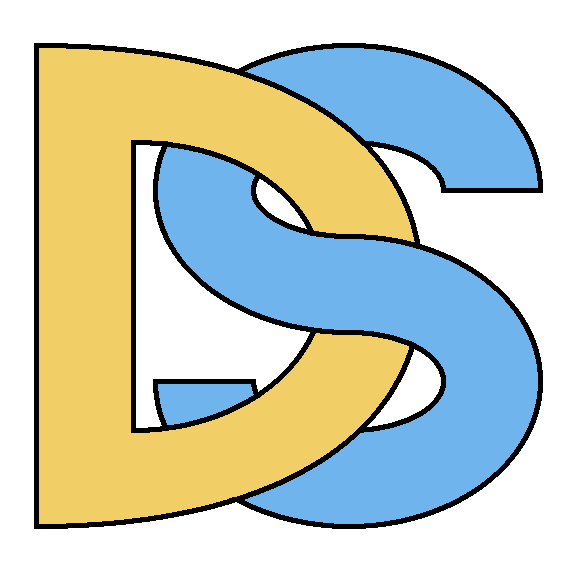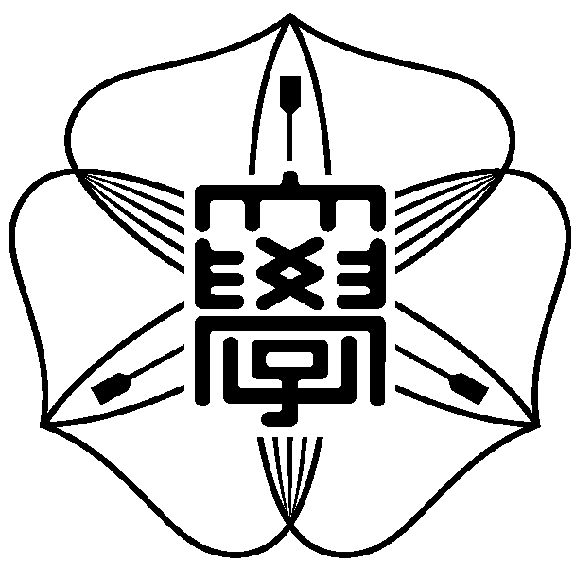- Thomas Zeugmann,
A posteriori Characterizations in Inductive Inference of Recursive Functions,
Journal of Information Processing and Cybernetics
(EIK) 19, No. 10/11, 1983, 559–594.
Abstract
- Thomas Zeugmann,
On the Synthesis of Fastest Programs in Inductive Inference,
Journal of Information Processing and Cybernetics
(EIK) 19, No. 12, 1983, 625–642.
Abstract.
- Thomas Zeugmann,
On the Nonboundability of Total Effective Operators,
Zeitschrift für mathematische Logik und Grundlagen der
Mathematik 30, Issues 9-11, 1984, 169–172.
Abstract.
- Efim B. Kinber
and
Thomas Zeugmann,
Inductive Inference of Almost Everywhere Correct Programs by Reliably Working
Strategies,
Journal of Information Processing and Cybernetics
(EIK) 21, No. 3, 1985, 91–100.
- Thomas Zeugmann,
On the Power of Recursive Optimizers,
Theoretical Computer Science
62, No. 3, 1988, 289–310.
Abstract.
- Thomas Zeugmann,
Improved Parallel Computations in the Ring Zpα,
Journal of Information Processing and Cybernetics
(EIK) 25, No. 10, 1989, 543–547.
Abstract.
-
Efim Kinber and Thomas Zeugmann,
One-Sided Error Probabilistic Inductive Inference
and Reliable Frequency Identification,
Information & Computation 92, No. 2, 1991, 253–284.
Abstract.
- Thomas Zeugmann,
Highly Parallel Computations modulo a Number
Having only Small Prime Factors,
Information & Computation
96, No. 1, 1992, 95–114.
Abstract
-
Steffen Lange
and Thomas Zeugmann,
Learning Recursive Languages with Bounded Mind Changes,
International Journal of Foundations of Computer
Science
4, No. 2, 1993, 157–178.
Abstract.
- Steffen Lange
and Thomas Zeugmann,
Characterization of Language Learning from Informant
under various Monotonicity Constraints,
Journal of Experimental & Theoretical Artificial
Intelligence 6, No. 1, 1994, 73–94.
Special issue Algorithmic Learning Theory.
Abstract
- Rolf Wiehagen and Thomas Zeugmann,
Ignoring Data May be the Only Way to Learn Efficiently,
Journal of Experimental & Theoretical Artificial
Intelligence 6, No. 1, 1994, 131–144.
Special issue Algorithmic Learning Theory.
Abstract
- William I. Gasarch,
Efim B. Kinber,
Mark G. Pleszkoch,
Carl H. Smith,
and Thomas Zeugmann,
Learning via Queries with Teams and Anomalies,
Fundamenta Informaticae
23, Number 1,
May 1995, 67–89.
Abstract.
- Steffen Lange and
Thomas Zeugmann,
Trading Monotonicity Demands versus Efficiency,
Bulletin of Informatics and Cybernetics 27,
No.1, 1995, pp. 53–83.
Abstract.
- Thomas Zeugmann,
Steffen Lange,
and Shyam Kapur,
Characterizations of Monotonic and Dual Monotonic Language Learning,
Information & Computation
120, No. 2, 1995, 155–173.
Abstract.
- Steffen Lange,
Thomas Zeugmann,
and Shyam Kapur,
Monotonic and Dual Monotonic Language Learning,
Theoretical Computer Science 155, No. 2, 1996,
365–410.
Abstract.
- Steffen Lange and
Thomas Zeugmann,
Incremental Learning from Positive Data,
Journal of Computer and System Sciences 53, No. 1, 1996,
88–103.
Abstract.
-
Steffen Lange and
Thomas Zeugmann,
Set-Driven and Rearrangement-Independent Learning of
Recursive Languages,
Mathematical Systems Theory 29, No. 6, 1996, 599–634.
Abstract.
- Carl H. Smith, Rolf Wiehagen, and
Thomas Zeugmann,
Classifying Predicates and Languages,
International Journal of Foundations of Computer
Science 8, No. 1, 1997, 15–41.
Abstract.
- Thomas Zeugmann,
Lange and Wiehagen's Pattern Language Learning
Algorithm: An Average-Case Analysis with respect to its Total Learning Time,
Annals of Mathematics and Artificial Intelligence 23, No. 1-2,
1998, 117–145,
(Special Issue for ALT '94 and AII '94).
Abstract
or as png-file Abstract.
- John Case,
Sanjay Jain,
Steffen Lange,
and Thomas Zeugmann,
Incremental Concept Learning for Bounded Data Mining,
Information & Computation 152, No. 1, 1999, 74–110.
Abstract.
-
Rüdiger Reischuk and Thomas Zeugmann,
An Average-Case Optimal One-Variable Pattern Language Learner,
Journal of Computer and System Sciences 60,
No. 2, 2000, 302–335.
(Special Issue for COLT '98).
Abstract.
- Sanjay Jain,
Efim Kinber,
Steffen Lange, Rolf Wiehagen, and Thomas Zeugmann,
Learning languages and functions by erasing,
Theoretical Computer Science 241, No. 1-2, 2000, 143–189.
(Special Issue for ALT '96).
Abstract.
-
Peter Rossmanith and Thomas Zeugmann,
Stochastic Finite Learning
of the Pattern Languages,
Machine Learning
44, No. 1/2, 2001, 67–91.
(Special Issue on Automata Induction, Grammar Inference, and Language
Acquisition),
Abstract.
-
Thomas Erlebach,
Peter Rossmanith,
Hans Stadtherr,
Angelika Steger, and Thomas Zeugmann,
Learning one-variable pattern languages very efficiently on average, in
parallel, and by asking queries,
Theoretical Computer Science 261, Issue 1, 2001, 119–156.
(Special Issue for ALT '97).
Abstract
(and link to our pattern language learning page).
- Frank Stephan
and Thomas Zeugmann,
Learning Classes of Approximations to Non-Recursive Functions,
Theoretical Computer Science 288, Issue 2, 2002, 309–341.
(Special Issue ALT '99).
Abstract.
-
Sanjay Jain,
Efim Kinber,
Rolf Wiehagen, and Thomas Zeugmann,
On Learning of Functions Refutably,
Theoretical Computer Science 298, Issue 1, 2003, 111–143.
Abstract.
-
Steffen Lange,
Gunter Grieser, and
Thomas Zeugmann,
Inductive Inference of Approximations for Recursive Concepts,
Theoretical Computer Science 348, Issue 1, 2005, 15–40.
(Special Issue Algorithmic Learning Theory (ALT 2000))
Abstract.
-
Thomas Zeugmann,
From Learning in the Limit to Stochastic Finite Learning,
Theoretical Computer Science 364, Issue 1, 2006, 77–97.
(Special Issue Algorithmic Learning Theory (ALT 2003))
Abstract.
-
John Case,
Sanjay Jain,
Rüdiger Reischuk,
Frank Stephan, and
Thomas Zeugmann,
Learning a Subclass of Regular Patterns in Polynomial Time,
Theoretical Computer Science 364, Issue 1, 2006, 115–131.
(Special Issue Algorithmic Learning Theory (ALT 2003))
Abstract.
-
Thomas Zeugmann and
Sandra Zilles,
Learning recursive functions: A survey,
Theoretical Computer Science 397, Issues 1-3, 2008, 4–56.
(Special Issue Forty Years of Inductive Inference: Dedicated to the 60th Birthday of Rolf Wiehagen)
Abstract.
-
Steffen Lange,
Thomas Zeugmann, and
Sandra Zilles,
Learning indexed families of recursive languages from positive data: A survey,
Theoretical Computer Science 397, Issues 1-3, 2008, 194–232.
(Special Issue Forty Years of Inductive Inference: Dedicated to the 60th Birthday of Rolf Wiehagen)
Abstract.
- Yohji Akama
and
Thomas Zeugmann,
Consistent and coherent learning with δ-delay,
Information & Computation 206,
Issue 11, 2008, 1362–1374.
Abstract.
- Haruya Iwasaki,
Shin-ichi Minato, and
Thomas Zeugmann,
A Method of ZBDD Variable Ordering for Frequent Pattern Mining
(頻出パターンマイニングのためのゼロサプレス型 BDD の変数順序付け方法とその評価),
The IEICE Transactions on Information and Systems (Japanese Edition)
(電子情報通信学会論文誌)
J91-D, No. 3, 2008, 608–618, in Japanese.
Abstract.
- Frank J. Balbach and
Thomas Zeugmann,
Teaching Randomized Learners with Feedback,
Information & Computation 209, Issue 3, 2011, 296–319.
(Special Issue for LATA 2009),
Abstract.
- Charles Jordan and
Thomas Zeugmann,
Testable and untestable classes of first-order formulae,
Journal of Computer and System Sciences 78, Issue 5, 2012, 1557–1578.
Abstract.
- Ilja Kucevalovs, Ojārs Krasts,
Rūsiņš Freivalds, and
Thomas Zeugmann,
On the Influence of Technology on Learning Processes,
Parallel Processing
Letters Vol. 24, Issue 2,
2014, 63–79.
Abstract.
- Thomas Zeugmann,
Obituary
Rūsiņš Mārtiņš Freivalds (1942–2016),
Bulletin of the EATCS 118, pp. 17–20, 2016.
- Charles Jordan and Thomas Zeugmann,
The Kahr–Moore–Wang
Class Contains Untestable Properties,
Baltic Journal of Modern Computing,
Vol. 4, Number 4, 2016, 736–752;
(Special Issue in memory of Rūsiņš Freivalds).
Abstract.
- Sanjay Jain, Frank Stephan, and Thomas Zeugmann,
On the amount of nonconstructivity in learning formal languages from text,
Information & Computation, in press 2020.
For further information, please contact
Thomas Zeugmann
 "thomas" at "ist.hokudai.ac.jp"
"thomas" at "ist.hokudai.ac.jp"
©Copyright Notice:
The documents distributed by this server have been provided
by the contributing authors as a means to ensure timely
dissemination of scholarly and technical work on a
noncommercial basis. Copyright and all rights therein are
maintained by the authors or by other copyright holders,
notwithstanding that they have offered their works here
electronically. It is understood that all persons copying this
information will adhere to the terms and constraints invoked
by each author's copyright. These works may not be reposted
without the explicit permission of the copyright holder.
This page is updated whenever new information is available.
Last update December 01, 2020.
|



